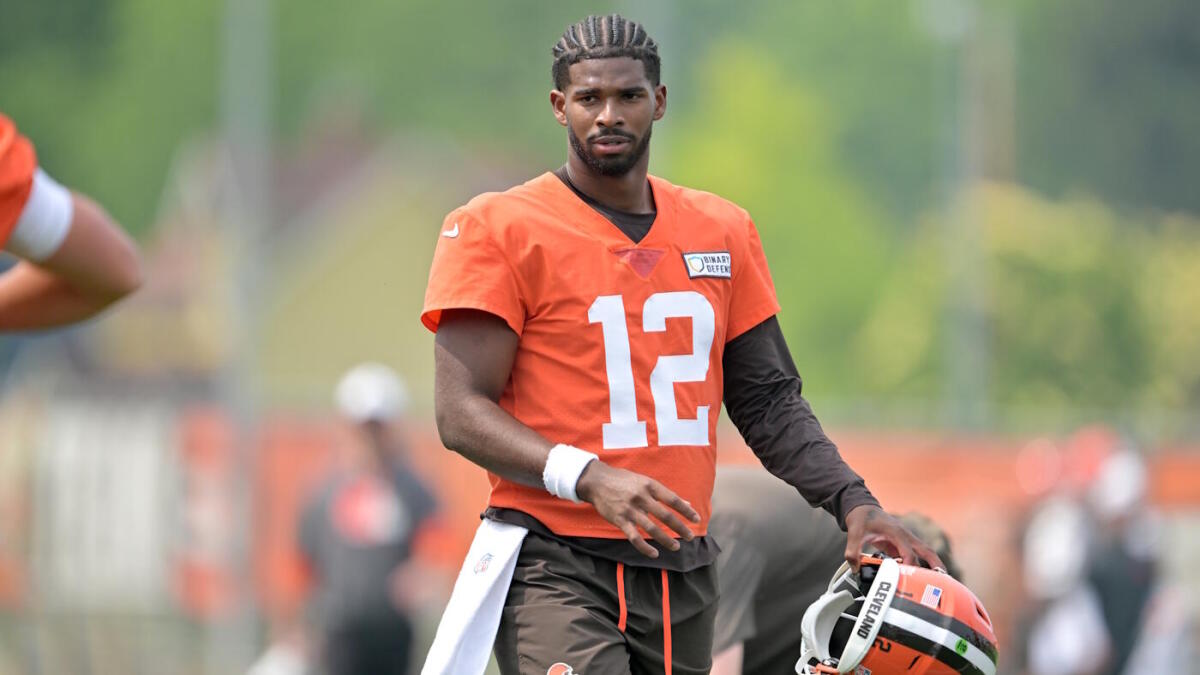A Rookie’s Misstep: Examining Shedeur Sanders’ Speeding Citation
The Incident: A Speeding Citation That Shocked the NFL
In the blink of an eye, a rookie quarterback’s life can change dramatically. For Shedeur Sanders, that moment came on a Tuesday morning when he was issued a speeding citation for driving 101 mph in a 60 mph zone on Interstate 71 in Strongsville, Ohio. The news, reported by multiple outlets including CBS Sports, Yahoo Sports, and ESPN, sent shockwaves through the NFL community. Just weeks into his professional career, Sanders found himself under intense scrutiny, not for his on-field performance, but for an off-field misstep.
The Facts: A High-Speed Encounter
The details of the incident are straightforward. At around 12:24 a.m. on June 17th, Strongsville Police Officer Ryan Kaetzel pulled over Sanders’ 2025 Dodge after radar detected the vehicle traveling at 101 mph. This speed was a staggering 41 mph over the posted limit. Sanders was issued a citation, facing a $250 fine or the option to contest the charge in court. The timing of the incident is particularly notable, occurring during the NFL offseason, a period typically reserved for acclimation and preparation.
The Context: A High-Profile Rookie Under Pressure
Shedeur Sanders’ entry into the NFL is anything but ordinary. As the son of Pro Football Hall of Famer Deion Sanders, he carries a significant legacy and a heavy burden of expectation. Despite his undeniable talent, showcased throughout his college career, Sanders’ draft position—144th overall in the fifth round—was seen by many as a fall from grace. Initially projected as a potential first-round pick, this perceived “flop” in the draft has added another layer of pressure to his performance.
The Browns’ quarterback situation further complicates the narrative. The team boasts a crowded quarterback room, featuring Kenny Pickett, Joe Flacco, and fellow rookie Dillon Gabriel. This competitive landscape means Sanders will face an uphill battle to secure playing time, making every aspect of his conduct, both on and off the field, subject to intense scrutiny.
A Pattern of Athlete Misconduct: Speeding and Reckless Driving
Sanders’ situation is not an isolated incident. The world of professional sports has seen numerous instances of athletes facing legal trouble related to speeding and reckless driving. Just recently, Vikings rookie wide receiver Jordan Addison was pulled over for driving 140 mph in a 55 mph zone, highlighting a concerning trend. This raises questions about the factors contributing to such behavior.
Possible explanations include access to high-performance vehicles, a sense of invincibility, the pressures of a demanding schedule leading to fatigue, and a lack of awareness regarding the consequences of their actions. The high visibility of athletes means that any infraction is amplified, leading to public criticism and potential damage to their reputation.
Potential Ramifications for Sanders
While a speeding ticket may seem like a minor offense, it can have several ramifications for a young NFL player. Beyond the financial penalty and potential impact on his driving record, the incident can:
- Damage Reputation: The negative publicity can tarnish Sanders’ image, potentially affecting endorsement opportunities and public perception.
- Team Discipline: The Browns may impose internal disciplinary measures, such as fines or restrictions, regardless of the legal outcome.
- Distraction: The incident can serve as a distraction from his primary focus: learning the playbook and competing for a roster spot.
- Increased Scrutiny: Sanders will likely face heightened scrutiny from the media and the public moving forward, with any future missteps magnified.
The Importance of Responsible Conduct
This incident serves as a stark reminder of the responsibilities that come with being a professional athlete. Beyond athletic prowess, athletes are role models, and their actions have a significant impact on their fans and the wider community. The Browns organization, and the NFL as a whole, emphasize the importance of responsible conduct, and this incident will likely be used as a teachable moment.
A Crossroads Moment
Shedeur Sanders’ early NFL experience has taken an unexpected turn. While the speeding citation itself may not be career-defining, how he responds to it could be. Choosing to accept responsibility, learn from the mistake, and demonstrate a commitment to responsible behavior will be crucial in shaping his image and building trust with the Browns organization and their fanbase. This incident presents a crossroads for the young quarterback—a chance to demonstrate maturity and a commitment to representing the Browns with integrity.

